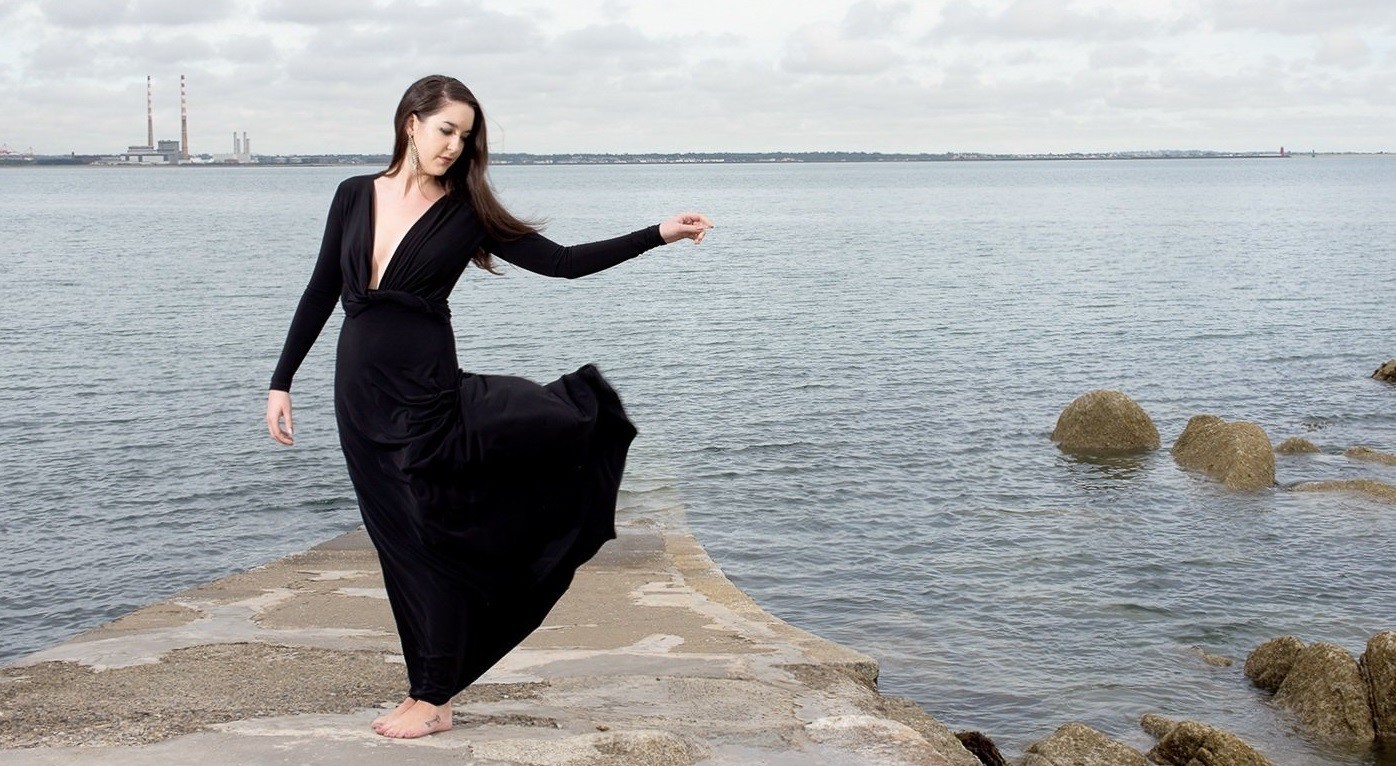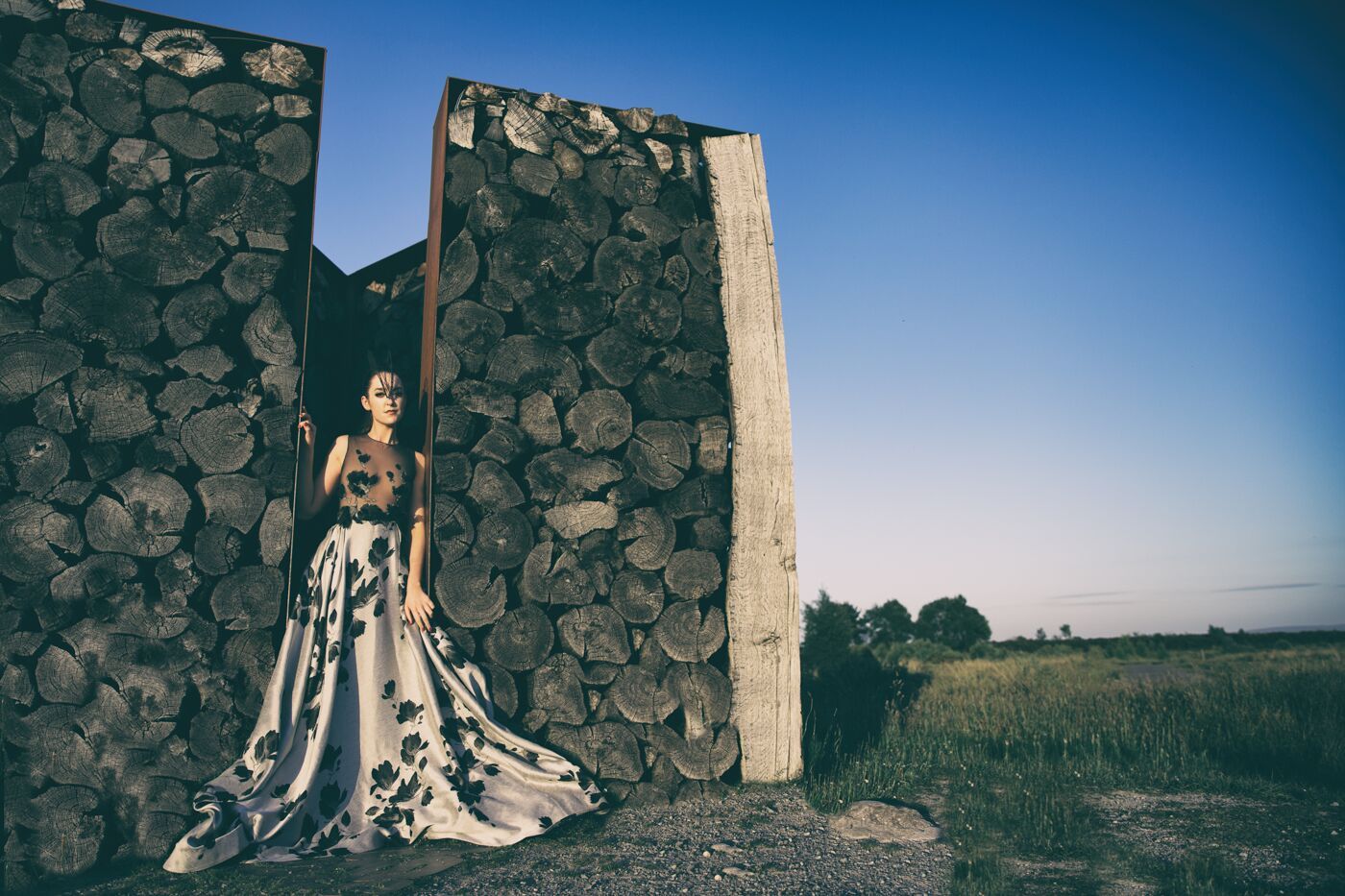Composer, singer, producer, researcher, and much else besides, Síobhra Quinlan is midway through the National Concert Hall's Female Conductor Programme, and met us recently to discuss her work, ideas, and hopes for the future.
Our conversation begins immediately: she’s just spent an intensive weekend with the other eleven participants and facilitator Alice Farnham, working with orchestral musicians, developing confidence and honing technical skills, and is clearly relishing the experience.
“The group dynamic has really gelled… it’s a really safe environment to be trying out new skills. There’s such a nice mix of ability, and everyone has different interests, musically, which is fascinating, so I think we’re all going to get something entirely different out of the programme, but the head-space is sort of the same, with everyone just up for jumping into the unknown.”
 The cliché of orchestral conductors as solitary figures, jealously guarding their knowledge, clearly doesn’t apply: “it doesn’t have a competitive vibe, it’s very encouraging, everybody helping each other because we’re all at different points. It’s not like we’re all competing to get this one thing… we’ve a lovely whatsapp group!”
The cliché of orchestral conductors as solitary figures, jealously guarding their knowledge, clearly doesn’t apply: “it doesn’t have a competitive vibe, it’s very encouraging, everybody helping each other because we’re all at different points. It’s not like we’re all competing to get this one thing… we’ve a lovely whatsapp group!”
It comes down to focusing on the all-consuming practicalities of working with music, and musicians, and—above all—communication.
Having trained classically as a soprano singer, and produced performances of her own music, Síobhra finds this new experience fascinating: “I really enjoy it, though I initially found it quite difficult… I’m not comfortable with things that are rhythmic and aggressive, and it’s that I haven’t actually physically built a vocabulary for that, so I started boxing!"
Training as a light soprano, you don’t really get the chance to express aggression, or anger, these kinds of ugly things, very often, so it’s really exciting being able to delve into the middle of the music and access a wider gestural palette, and I think that’s helping with my singing.”
The programme is proving an opportunity to draw different aspects of her work together, highlighting what she’s enjoyed as much as what is still relatively new:
“The most magical musical experience I’ve ever had was beginning to record things that I’ve composed, for the first time, and getting into a room with a small group of musicians who you really trust, and—you know, there’s so much which is on the page, but there’s a lot which I guess you haven’t articulated yet, because you don’t know yet how it’s going to sound until it’s sounded, and then there are things to tweak, and I love the dialogue between musicians, when it just goes into ‘rehearsal-music speak’, this form of communication at a whole different level, and I absolutely adore that.”
 Síobhra readily admits that the experience so far has had its share of challenges and frustrations, which she’s enjoyed: “it’s really good, it’s really nice to feel like that, just out of my comfort zone: it’s intense!” For her, the hope is that, more and more, her creative and performing work will begin to converge, and settle into ‘the middle of the music’, with the conducting programme as part of that process for her.
Síobhra readily admits that the experience so far has had its share of challenges and frustrations, which she’s enjoyed: “it’s really good, it’s really nice to feel like that, just out of my comfort zone: it’s intense!” For her, the hope is that, more and more, her creative and performing work will begin to converge, and settle into ‘the middle of the music’, with the conducting programme as part of that process for her.
As she sees it, its potential role is much wider than simply gaining new practical skills, valuable though they are, given how it connects to issues of artistic communication and leadership:
“I’m fascinated by female creative leadership in broader terms, and this being a facet of that. I know I couldn’t have conducted earlier than now, because I didn’t have the confidence to do it… I think it’s about finding your own way, as opposed to replicating the male model that is visible to us, and that applies to not just conducting, but leadership in general.
Across the board, it’s being able to embrace leadership in a different way and find something new. It feels like we’re on the cusp of something exciting.”
For more information about Síobhra, visit siobhraquinlan.com
